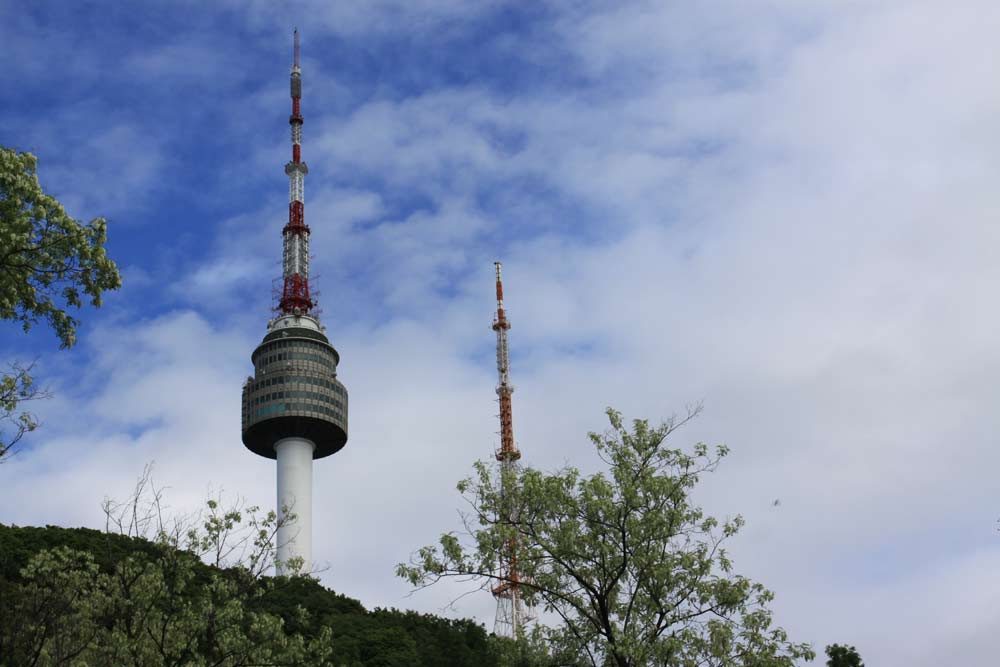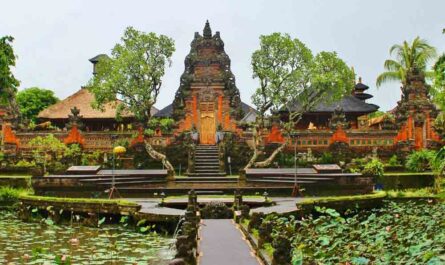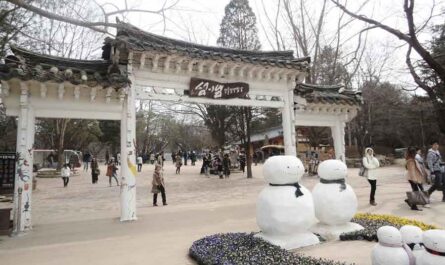Mind-blowing facts about South Korea will astonish you with much useful information about this Asian country. Traveling to South Korea offers more than just sightseeing; it provides a holistic experience steeped in cultural immersion and human connection. From navigating the bustling streets of Seoul to engaging in language exchanges and social gatherings, visitors are invited to delve into the intricacies of Korean society, where safety, respect, and camaraderie converge to create unforgettable memories and enriching encounters.
Mind-blowing Facts about South Korea
Korea offers a vibrant social scene, attracting a diverse array of individuals including expats, ESL (English as a Second Language) teachers, avid travelers, and sociable locals. With a multitude of people sharing similar interests passing through or residing in the country, opportunities for socializing and forming connections abound, fostering a sense of camaraderie and community among like-minded individuals. Here are some interesting facts about South Korea:
1. Vibrant Cultural Extravaganza at Gwanghwamun Square
Gwanghwamun Square in Seoul pulsates with an eclectic array of cultural performances and events that captivate the senses of passersby. From spirited displays of traditional Korean dance by seasoned performers to dynamic presentations showcasing the culinary delights of North Korea accompanied by live music, the square serves as a vibrant hub of cultural exchange and celebration. Whether you’re drawn to the rhythmic beats of tambourines or the savory aromas wafting from culinary demonstrations, Gwanghwamun Square offers something to enthrall every visitor, embodying the dynamic spirit of South Korea’s cultural mosaic.
2. Trust and Safety in Public Spaces
The culture of trust and safety in Korea is exemplified by everyday experiences, such as leaving belongings unattended in public spaces like coffee shops. It’s a testament to the country’s low crime rate and strong social norms, where individuals can feel confident that their possessions will remain untouched until their return. This level of trust further enhances the overall sense of security and peace of mind enjoyed by residents and visitors alike.
3. Efficient and Extensive Public Transportation
Navigating Seoul and its surrounding districts is made seamless and affordable thanks to the highly efficient subway system. Stretching from Seoul Central to nearby areas such as Suwon and Bucheon, the Seoul metro network offers commuters a convenient and cost-effective means of transportation. With its extensive coverage, punctuality, and user-friendly signage, the subway system facilitates smooth and hassle-free travel throughout the bustling metropolis and beyond.
4. Unique Holidays on the Korean Calendar
Korean culture is punctuated by a multitude of distinctive holidays that offer insights into the country’s rich traditions and customs. Among these, Chuseok, commonly known as Korean Thanksgiving, holds a prominent place, serving as a time for families to gather, express gratitude, and honor ancestors through feasts and ancestral rites. Similarly, Hangeul Day celebrates the creation and significance of the Korean alphabet, highlighting the cultural pride associated with language and literacy.
5. Quirky and Exclusive Events
In addition to traditional holidays, South Korea boasts a plethora of quirky and “only in Korea” events that add a dash of eccentricity to its cultural landscape. The Boryeong Mud Festival, for instance, draws crowds from far and wide to revel in the therapeutic properties of mud, engaging in mud wrestling, mudslides, and other mud-themed activities against the backdrop of scenic Boryeong beaches. Likewise, the Kimchi Festival pays homage to Korea’s iconic fermented cabbage dish, offering visitors a taste of its diverse varieties and cultural significance through cooking demonstrations, tastings, and competitions.
6. Beyond the Frantic Facade: Rediscovering Seoul
While Seoul is often characterized as a bustling metropolis teeming with activity, the reality offers a more nuanced perspective. Contrary to its frenetic reputation, Seoul embodies a harmonious blend of modernity and tranquility, where moments of serenity can be found amidst the urban sprawl. From serene parks and tranquil temples to quaint neighborhoods and hidden alleyways, Seoul beckons visitors to explore its quieter, more contemplative side, inviting them to slow down and savor the quieter moments that punctuate the pulse of the city. Beyond its outward hustle and bustle, Seoul unveils a tapestry of experiences that resonate with both locals and visitors alike, offering a glimpse into the soul of South Korea’s dynamic capital.
7. Culinary Delights of South Korea
South Africa’s culinary landscape has been profoundly enriched by the flavors of South Korea. From the tangy delight of kimchi to the sizzling satisfaction of bulgogi, Korean cuisine has found a welcoming home among South African food enthusiasts. Red rice cakes, known as tteokbokki, offer a spicy kick, while the hearty bibimbap satisfies with its colorful array of vegetables and protein. Korean stew, or jjigae, warms the soul with its rich broth, and the comforting allure of jajangmyeon noodles is irresistible. For those seeking a crispy indulgence, samgyeopsal and Korean fried chicken tantalize taste buds with their crunchy exteriors and succulent interiors. Each dish tells a story of tradition, flavor, and culinary craftsmanship, offering a delectable journey through South Korea’s gastronomic heritage.
8. The Allure of Male Grooming in South Korea
In South Korea, the art of male grooming has evolved into a cultural phenomenon, captivating men across the nation. With meticulous care, South Korean men invest in cosmetics, particularly makeup, to enhance their appearance. This dedication to personal presentation transcends mere vanity, reflecting a desire for self-expression and confidence. Surpassing global standards, South Korean males lead in skincare consumption per capita, surpassing even Denmark by fourfold. Through the meticulous application of cosmetics, men in South Korea redefine beauty standards, embracing an ethos of self-care and refinement.
9. South Korea: The Digital Frontier
At the forefront of the digital age, South Korea stands as a beacon of technological prowess and connectivity. With unparalleled speed, the nation boasts the world’s fastest average internet connection, propelling it to the forefront of global connectivity. Embracing the digital domain, a staggering 92.4 percent of the population harnesses the power of the internet, shaping a society characterized by innovation and interconnectedness. From bustling urban centers to remote rural communities, the internet serves as a ubiquitous tool, facilitating communication, commerce, and cultural exchange. In South Korea, the digital frontier heralds a new era of connectivity, shaping the fabric of society with its boundless possibilities.
10. Unique Age Calculations and Celebrations
In South Korea, age is perceived through a lens uniquely intertwined with cultural traditions. Upon a child’s birth, they are immediately deemed one year old, with their age advancing by one year on each Lunar New Year thereafter. This distinctive approach to age calculation imbues significance to cultural celebrations, particularly the 100-day milestone following a newborn’s arrival. At this juncture, families gather to commemorate the infant’s first steps into the world, marking a joyous occasion filled with blessings, rituals, and familial camaraderie.
11. Controversy Surrounding Dog Meat Consumption
Despite facing mounting controversy and condemnation, the consumption of dog meat persists in certain underprivileged pockets of South Korea. Rooted in a tradition spanning over 2,000 years, the practice of eating dogs remains deeply ingrained in South Korean culture. However, as societal attitudes evolve and an increasing number of South Koreans voice opposition to this practice, there is hope that the centuries-old tradition may eventually wane. Yet, the contentious debate surrounding dog meat consumption underscores the complex interplay between cultural heritage, ethical considerations, and evolving societal norms in contemporary South Korea.
12. Legal Shifts: Decriminalizing Adultery
For over six decades, South Korea grappled with a contentious legal stance on adultery, with the practice being strictly prohibited by law. However, in a landmark decision in February 2015, the country’s Constitutional Court overturned the statute criminalizing adultery, citing a breach of the nation’s constitution. This pivotal ruling marked the culmination of years of legal deliberation and societal discourse, heralding a significant shift in South Korea’s legal landscape. With the decriminalization of adultery, South Korea embarked on a new chapter in its legal journey, navigating the delicate balance between moral governance and individual freedoms in its quest for societal justice and progress.

13. The Magnificent Mud Festival of Boryeong
Nestled 200 kilometers south of Seoul, the quaint town of Boryeong transforms into a playground of primal delight every July, hosting what is arguably the world’s largest mud festival. The Boryeong Mud Festival casts its spell over visitors with a mesmerizing array of activities, from exhilarating mud battles and tournaments to indulgent massages and rejuvenating treatments. Since its inception in 1998, this iconic event has captivated the imaginations of millions of tourists, drawing them to Boryeong’s shores to revel in the therapeutic embrace of mud, forging unforgettable memories amidst the backdrop of joyous camaraderie and uninhibited fun.
14. Blood Type Personality Beliefs in South Korea
In the intricate tapestry of South Korean culture, the belief that one’s blood type is indicative of their personality holds sway, akin to the fervent adherence to horoscopes in Western nations. This unconventional notion pervades various aspects of societal interactions, with many South Koreans taking it extremely seriously. From job interviews to matchmaking endeavors, blood type personality assessments wield influence, shaping perceptions and expectations in a manner that transcends rationality. This cultural quirk offers a fascinating glimpse into the complexities of belief systems and societal norms in contemporary South Korea.
15. Samsung: A Colossus of Innovation and Industry
At the helm of South Korea’s economic juggernaut stands Samsung, a global conglomerate that commands a staggering 20% share of the nation’s formidable $1.1 trillion GDP. While renowned primarily for its prowess in electronics, Samsung’s multifaceted portfolio extends far beyond consumer electronics, encompassing diverse sectors ranging from armored vehicles and oil tankers to appliances, door locks, and medical equipment. As a cornerstone of South Korea’s industrial landscape, Samsung’s enduring legacy of innovation and enterprise underscores its pivotal role in driving economic growth and shaping the nation’s trajectory on the global stage.
16. South Korea: A Beacon of Wealth and Technological Advancement
Emerging as a paragon of prosperity and innovation, South Korea has ascended to the ranks of the world’s wealthiest nations, carving out a niche as a veritable haven for tech enthusiasts. With a flourishing economy and a vibrant technological ecosystem, South Korea beckons visionaries and innovators from around the globe, offering boundless opportunities for exploration, growth, and collaboration at the forefront of the digital frontier.
17. Cultural Traditions: Age Calculations in South Korea
In South Korea, age is imbued with cultural significance, with newborns immediately bestowed with the title of “one year old” upon their arrival into the world. Following this unique age calculation, children mark their progression in years with each Lunar New Year celebration, symbolizing not only the passage of time but also the renewal of hope and aspirations for the future. This cultural tradition underscores the deep-rooted reverence for familial ties and the interconnectedness between tradition and modernity in South Korean society.
18. Digital Dominance: South Korea’s Internet Supremacy
Standing as a global leader in internet connectivity, South Korea boasts the fastest average connection speed worldwide, cementing its status as an undisputed pioneer in the digital realm. With unparalleled access and speed, the internet serves as a catalyst for innovation, communication, and societal transformation, propelling South Korea to the forefront of the digital age. In a world characterized by constant connectivity and information dissemination, South Korea’s internet prowess exemplifies the nation’s unwavering commitment to technological advancement and digital empowerment. How AI, ChatGPT maximizes earnings of many people in minutes
19. Embracing Tradition: It’s Kimchi, not Cheese!
In the rich tapestry of South Korean cuisine, one culinary commandment reigns supreme: “It’s Kimchi, not Cheese!” Amidst the kaleidoscope of flavors and aromas that grace the dining table, Kimchi stands as a timeless emblem of tradition and taste, revered for its pungent allure and probiotic prowess. From the fiery embrace of spicy cabbage Kimchi to the tangy tang of radish Kimchi, each bite tells a story of culinary craftsmanship and cultural heritage, inviting diners to embark on a gastronomic journey through the heart and soul of South Korea’s culinary landscape.
20. Shaving Away the Stigma: Beards are Bad!
In the intricate tapestry of societal norms and grooming standards, a peculiar prejudice takes root: “Beards are bad!” Despite their storied history and rugged charm, facial hair finds itself relegated to the outskirts of acceptability, deemed unsightly and unkempt by mainstream sensibilities. From corporate boardrooms to societal gatherings, the pressure to conform to clean-shaven ideals weighs heavily on those who dare to defy the status quo. Yet, amidst the sea of conformity, a silent rebellion brews, challenging the entrenched norms and championing the right to self-expression and individuality, one whisker at a time. Motivation – Mind – Success – Thinking – Productivity – Happiness
21. Beware the Unlucky Number: A Superstitious Warning
In the labyrinth of superstition and folklore, a whispered warning sends shivers down the spine: “This number is very unlucky!” Embedded within the collective consciousness, certain numbers carry a weighty significance, believed to portend misfortune and calamity upon those who dare to tread in their shadow. From the foreboding aura of the number 13 to the ominous connotations of the number 4, superstition casts its shadow over the realm of numerology, urging caution and reverence in the face of numerical mystique.
22. Kimchi: More Than a Dish, It’s Love
In the culinary tapestry of South Korea, one truth reigns supreme: “Kimchi is Love.” Beyond its tangy flavors and fiery spices, Kimchi embodies the essence of familial warmth and cultural heritage, revered as a symbol of affection and nourishment. From the meticulous preparation of cabbage and radishes to the delicate balance of seasoning and fermentation, each batch of Kimchi is crafted with care and devotion, infusing every bite with a taste of love that transcends culinary boundaries and unites hearts in shared appreciation. Business – Money Making – Marketing – E-commerce
23. The Fear of the Unknown: A Universal Phenomenon
In the labyrinth of human consciousness, a primal fear lurks in the shadows, waiting to pounce upon unsuspecting souls: “The Fear of…” Whether rooted in ancient folklore or modern anxieties, fear holds sway over the human psyche, manifesting in myriad forms and guises. From the dread of darkness to the terror of the unknown, fear casts its shadow over the human experience, challenging our resolve and testing our resilience in the face of adversity. Yet, amidst the chaos and uncertainty, the human spirit perseveres, finding solace in courage and resilience, illuminating the path forward with unwavering determination. Health books, guides, exercises, habits, Diets, and more
24. South Korea’s Bad Omen: A Trepidation of the Unknown
In the intricate tapestry of South Korean culture, a pervasive sense of foreboding looms ominously, casting a shadow over the collective consciousness: “South Korea’s Bad Omen.” Rooted in ancient folklore and cultural superstitions, this sense of trepidation embodies the nation’s enduring fascination with the unseen forces that shape destiny and fortune. From the foreboding whispers of ancestral spirits to the spectral allure of ghostly apparitions, South Korea’s bad omen serves as a cautionary reminder of the delicate balance between the mortal realm and the ethereal unknown, urging reverence and respect for the mysteries that lie beyond the veil. Fitness – Meditation – Diet – Weight Loss – Healthy Living – Yoga
25. Black Day: A Special Day for Singles
Amidst the kaleidoscope of celebrations that adorn the calendar, one day stands out as a poignant reminder of solitude and longing: “Black Day.” For singles across South Korea, this solemn occasion serves as a sanctuary for the unattached, offering solace amidst a sea of romantic fervor. Marked by the consumption of jjajangmyeon, a savory noodle dish swathed in dark, velvety sauce, Black Day becomes a symbol of solidarity and resilience, uniting solitary hearts in shared camaraderie and mutual understanding. As couples bask in the glow of affection on Valentine’s Day and White Day, singles find solace in the embrace of Black Day, reclaiming their autonomy and celebrating the beauty of self-love amidst a world enamored with romantic illusions. RPM 3.0 – 60% CONVERSION & Money for Affiliate Marketing
26. Makeup: The Art of Transformation
In the vibrant tapestry of South Korean culture, makeup emerges as a powerful tool of self-expression and transformation. From the delicate strokes of eyeliner to the radiant glow of blush, makeup transcends mere cosmetics, becoming a canvas upon which individuals paint their innermost desires and aspirations. In South Korea, makeup assumes a revered status, celebrated for its ability to enhance natural beauty and cultivate confidence. For many, the ritual of applying makeup becomes a sacred act of self-care and empowerment, imbuing each brushstroke with intention and meaning. From the glittering lights of Seoul’s bustling streets to the tranquil sanctuaries of rural villages, makeup weaves its magic, illuminating the path to self-discovery and inner radiance.
More Interesting Articles
- 25 California Drought Facts – Causes | Effects | Solution
- 38 Interesting Facts About Australian Flag
- 25 Interesting Facts About The Roman Empire
- 100 Fun Facts About France One Should Know
- 15 Facts About Letchworth State Park, NY
- 40 Amazing Walt Disney World Facts
- 25 Interesting Facts About Glastonbury Festival
- 10 Interesting Facts About Antalya Turkey
- 70 Interesting Facts about the Eiffel Tower
- 26 Facts About Tokyo Meiji Jingu Temple
- 20 Fun Facts about Yosemite National Park, California
- 30 Interesting Facts About Dublin, Ireland
- 57 Must-do Things in Budapest for Travelers
- 13 Interesting Beijing Facts Everyone Must Know
- 16 Facts – Harbin International Ice and Snow Sculpture Festival
- 20 Surprising Facts About The German Flag
- 25 Surprising Facts About Florida Flag
- 17 Interesting Netherlands Facts to Surprise All
- 100 Tallest Completed Buildings in the World
- 15 Interesting Louvre Museum Facts to Know



